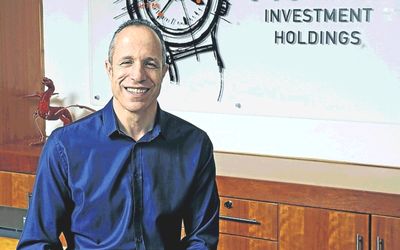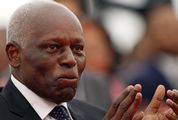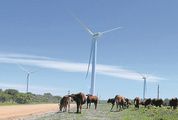PAVLO’S PERSPECTIVE: Group Five's attention to trends pays off
by Pavlo Phitidis,
2015-04-30 06:22:32.0
TRENDS are change agents that bring about new environments in which businesses fly or fall. Not driven by single events, they incorporate a number of factors that work together in logical and illogical sequences.
They are not fads, novelties or projections. The psychologist Carl Jung said projections are personal impressions that operate differently in all of us. While not necessarily wrong, they are equally — and especially — not necessarily right.
Acting on trends requires courage, a most valuable ingredient in entrepreneurial teams.
Construction companies are hard businesses to build. Success requires multiple projects matched to a company’s delivery and execution capability. This needs a growth and investment climate.
Specialisation helps prevent misinterpretation of how to cost and manage projects — building a home is considerably different to a power plant. Multiple projects smooth revenues, creating an opportunity to build a business.
Construction firms are hungry beasts. The moment project flow falters, the beast frays at the edges and loses critical components needed to secure future projects.
The trends governing the construction industry today are shaping new environments. A broken relationship with the government, driven by mistrust and skills shortages, has resulted in the R700bn promise of anticipated infrastructure investment left on the table, unexecuted.
The slowdown is resulting in key skills departing construction for other sectors. Exciting growth north of our borders is being driven off low bases, so big projects are available.
BEE compliance in relation to government-linked tenders in SA is building momentum.
The entrepreneurial team at Group Five has responded to these trends. Attention to big projects in Africa is a necessity for a big player and the company is innovating its offering. Developing countries being built off low bases are straddled by short supplies of funding and skills for projects.
Group Five has developed competencies in vendor funding and concession management as well as in skills sourcing and engagement to build the multidisciplinary teams needed to win this game. Beyond building, it has become an expert banker.
Ten years ago, Tlaleng Moabi and two co-founders of her company left the comfort of the corporate world as professional black female engineers to establish Enzani — an electrical engineering, procurement and construction business.
They have worked hard and well. The trends shaping construction are opening new opportunities for them. As a successful subcontractor to Group Five, the door has been opened to establish the business elsewhere in Africa.
These new markets mean more consistent business and the cost of getting there will in part be offset by contracts that they secure.
Should they instead focus solely on the South African market where the diminishing attention of the big players is leaving a potential gap for medium-sized, rightly constituted, skilled construction players?
A key criterion for an entrepreneur is courage — the appetite to act on a view and make it happen.
As the same trends drive different opportunities for the players in a sector, size, resources and entrepreneurial capacity define how a business capitalises on change.
A changing world favours focus and agility. Focus helps in quick choices and agility allows quick action. This defines the entrepreneurial leadership that will lead our economy through excellence.
• Phitidis is the CEO of Aurik Business Incubator, a director of Aurik Enterprise & Supplier Development, an entrepreneurship commentator on radio and the presenter of The Growth Engines.

Pavlo Phitidis. Picture: SUPPLIED
TRENDS are change agents that bring about new environments in which businesses fly or fall. Not driven by single events, they incorporate a number of factors that work together in logical and illogical sequences.
They are not fads, novelties or projections. The psychologist Carl Jung said projections are personal impressions that operate differently in all of us. While not necessarily wrong, they are equally — and especially — not necessarily right.
Acting on trends requires courage, a most valuable ingredient in entrepreneurial teams.
Construction companies are hard businesses to build. Success requires multiple projects matched to a company’s delivery and execution capability. This needs a growth and investment climate.
Specialisation helps prevent misinterpretation of how to cost and manage projects — building a home is considerably different to a power plant. Multiple projects smooth revenues, creating an opportunity to build a business.
Construction firms are hungry beasts. The moment project flow falters, the beast frays at the edges and loses critical components needed to secure future projects.
The trends governing the construction industry today are shaping new environments. A broken relationship with the government, driven by mistrust and skills shortages, has resulted in the R700bn promise of anticipated infrastructure investment left on the table, unexecuted.
The slowdown is resulting in key skills departing construction for other sectors. Exciting growth north of our borders is being driven off low bases, so big projects are available.
BEE compliance in relation to government-linked tenders in SA is building momentum.
The entrepreneurial team at Group Five has responded to these trends. Attention to big projects in Africa is a necessity for a big player and the company is innovating its offering. Developing countries being built off low bases are straddled by short supplies of funding and skills for projects.
Group Five has developed competencies in vendor funding and concession management as well as in skills sourcing and engagement to build the multidisciplinary teams needed to win this game. Beyond building, it has become an expert banker.
Ten years ago, Tlaleng Moabi and two co-founders of her company left the comfort of the corporate world as professional black female engineers to establish Enzani — an electrical engineering, procurement and construction business.
They have worked hard and well. The trends shaping construction are opening new opportunities for them. As a successful subcontractor to Group Five, the door has been opened to establish the business elsewhere in Africa.
These new markets mean more consistent business and the cost of getting there will in part be offset by contracts that they secure.
Should they instead focus solely on the South African market where the diminishing attention of the big players is leaving a potential gap for medium-sized, rightly constituted, skilled construction players?
A key criterion for an entrepreneur is courage — the appetite to act on a view and make it happen.
As the same trends drive different opportunities for the players in a sector, size, resources and entrepreneurial capacity define how a business capitalises on change.
A changing world favours focus and agility. Focus helps in quick choices and agility allows quick action. This defines the entrepreneurial leadership that will lead our economy through excellence.
• Phitidis is the CEO of Aurik Business Incubator, a director of Aurik Enterprise & Supplier Development, an entrepreneurship commentator on radio and the presenter of The Growth Engines.




















Change: 0.40%
Change: 0.47%
Change: -0.49%
Change: 0.53%
Change: 1.03%
Data supplied by Profile Data
Change: 1.71%
Change: 1.28%
Change: 0.40%
Change: 0.00%
Change: 1.64%
Data supplied by Profile Data
Change: -1.27%
Change: 0.00%
Change: 0.05%
Change: -0.08%
Change: 0.35%
Data supplied by Profile Data
Change: -0.02%
Change: 0.21%
Change: -0.06%
Change: 0.53%
Change: 0.70%
Data supplied by Profile Data